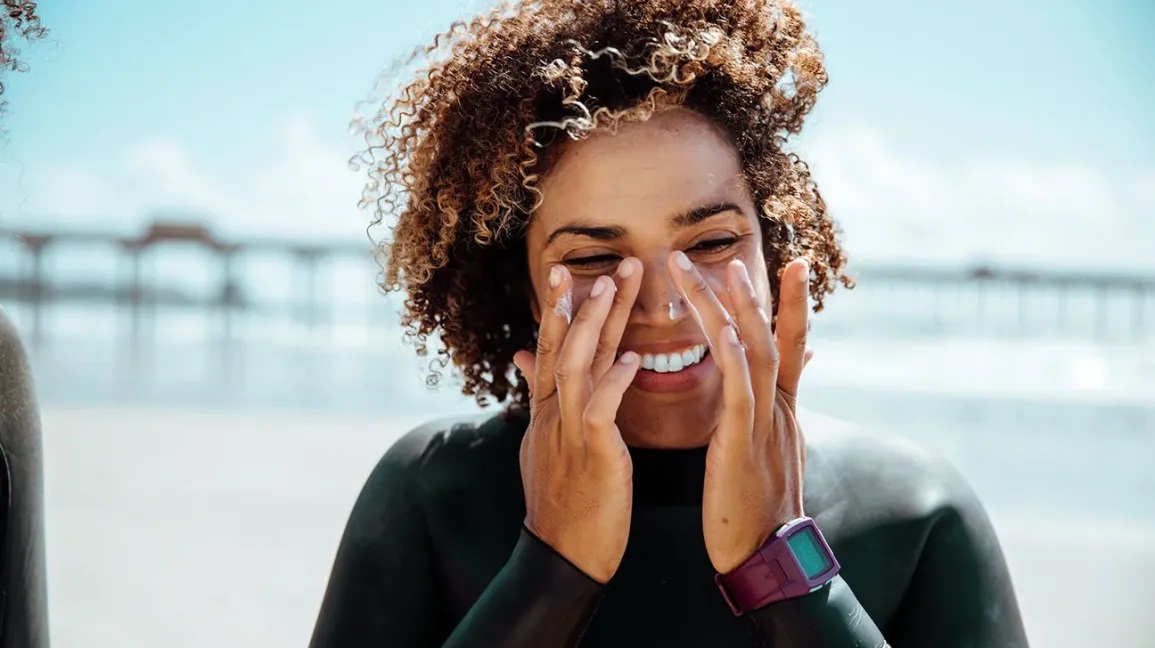Sunscreen is an essential part of any skincare routine, especially during the summer months when the sun’s rays are at their strongest. However, applying sunscreen correctly is just as crucial as wearing it.
To ensure you are getting the maximum protection and staying sun savvy, here are some essential tips to follow:
- Choose a Broad-Spectrum Sunscreen
When you buy sunscreen, go for a broad-spectrum option. This type of sunscreen provides protection against both UVA and UVB rays. UVA rays can cause premature aging of the skin and increase the risk of skin cancer, while UVB rays are the main cause of sunburn. Opting for a broad-spectrum sunscreen ensures that your skin is shielded from both types of harmful rays.
- Look for a High SPF
Sun Protection Factor (SPF) indicates how long the sunscreen will protect your skin from UVB rays. It is recommended to use sunscreen with an SPF of 30 or higher. While a higher SPF provides greater protection, it’s important to note that no sunscreen can block 100% of the sun’s rays. Reapplication is still necessary for continued protection.
- Apply Sunscreen Before Sun Exposure
To ensure adequate protection, apply sunscreen approximately 15 to 30 minutes before stepping outside. This allows the product to fully absorb into the skin and form a protective barrier.
- Use Enough Sunscreen
Many people make the mistake of applying too little sunscreen, significantly reducing its effectiveness. To cover your entire body adequately, use about one ounce (30 milliliters) of sunscreen. Don’t forget to apply it to commonly overlooked areas such as the ears, back of the neck, and tops of the feet.
- Reapply Every Two Hours
Regardless of the SPF level, sunscreen should be reapplied every two hours, or more frequently if you have been swimming or sweating excessively. Even water-resistant sunscreens can wear off over time, so it’s crucial to stay vigilant and reapply regularly.
- Don’t Forget Your Lips and Eyes
The delicate skin on your lips and around your eyes is susceptible to sun damage as well. Apply a lip balm with SPF to protect your lips from harmful rays. Additionally, wear sunglasses with UV protection to shield your eyes and the surrounding area.
- Seek Shade During Peak Hours
While sunscreen provides protection, it’s still important to limit direct sun exposure during peak hours when the sun’s rays are the strongest. Seek shade under an umbrella, tree, or other forms of shelter. Wearing protective clothing like wide-brimmed hats and long-sleeved shirts can also offer additional defense.
- Check Expiration Dates
Sunscreen loses its effectiveness over time, so be sure to check the expiration date before using it. Expired sunscreen may not provide the level of protection stated on the label, putting your skin at risk. If your sunscreen has expired, dispose of it properly and purchase a new one.
- Be Mindful of Other Skincare Products
Certain skincare products, such as those containing retinol or exfoliating acids, can increase skin sensitivity to the sun. Check the labels of your skincare products and take extra precautions when using them. It’s advisable to apply sunscreen over these products to minimize the risk of sunburn.
- Educate Others About Sunscreen
Spread awareness about the importance of sunscreen to your friends, family, and community. Encourage them to make sunscreen a part of their daily routine, especially during outdoor activities. By educating others, you contribute to a sun-savvy culture that prioritizes skin health.
In conclusion, applying sunscreen correctly is vital for effective protection against the sun’s harmful rays. Choose a broad-spectrum sunscreen with a high SPF, apply it generously and frequently, and remember to protect your lips and eyes as well. Seek shade when necessary, check expiration dates, and be cautious with other skincare products that may increase sun sensitivity. By following these essential tips, you can enjoy the outdoors while keeping your skin healthy and sun savvy.









